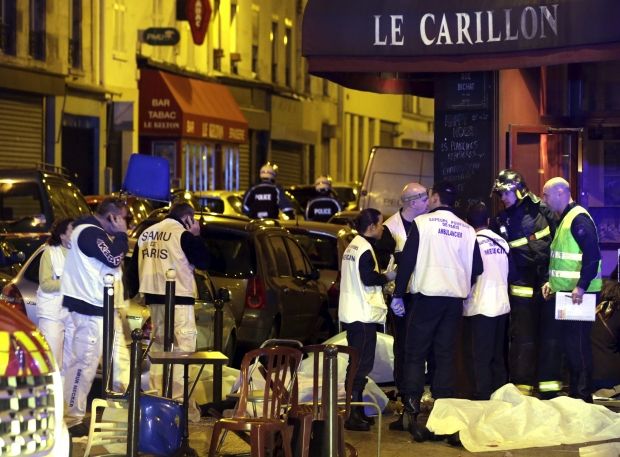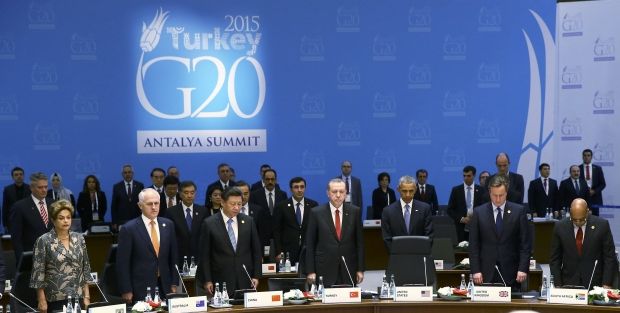
Ukrainian interest. Paris followup, Russia’s double game, and dialectics of European integration
The terrorist attacks in Paris drew a global response, and they may forever change the power structure in international relations. Russia almost simultaneously offered Ukraine the installment plan for the “Yanukovych’s loan” and vowed to introduce embargo against the Ukrainian exports. EU Commissioner Johannes Hahn believes that the European Commission will estimate the success of Ukraine and Georgia in meeting conditions for visa liberalization.
While the French police provided instant response to the terrorist attacks in Paris, their consequences in foreign policy will be spread over time. Francois Hollande was forced to ignore the G-20 summit and show determination to fight terrorism to his fellow citizens. The French leader intends to visit late November his U.S. and Russian counterparts, who he sees as his potential allies in this battle.
Vladimir Putin is well aware that Hollande’s increased attention may be used to resolve the major problem of Russian foreign policy – the western sanctions. Despite G20 meeting hinting that there is no chance at the moment for the restrictions against Russia to be lifted, the Kremlin is not discouraged. The Russians are now trying to finetune their propaganda in line with the new environment, and looking for prerequisites for strengthening the Russian-French relations. One of them is Russia's readiness to deploy its troops for ground operations in the Middle East, something the Western powers are reluctant to do at the moment.
The Russia-France rapprochement might have unforeseen implications for Ukraine consequences, as Paris has been an active mediator in the Donbas settlement process until recently, while Francois Hollande has played a part of an advisor regarding the algorithm of reconciliation. However, hypothetical rapprochement with Putin strips Hollande of an "honest broker" status, while the Normandy format becomes meaningless. In all fairness it should be noted that last several rounds of talks of the Tripartite Liaison Group in Minsk saw no result.
While in Antalya, Turkey, attending the G-20 summit, Vladimir Putin expressed, rather unexpectedly for many, his readiness to restructure the $3 billion "Yanukovych’s loan." He said Russia expects to receive from Ukraine $1 billion each year through 2016-2018. Interestingly enough, the offer was voiced with no Ukrainian officials present, while Rusian PM Dmitry Medvedev in just a few days advised the Ukrainian side not to act up "in the issue of loan restructuring.”. Moreover, the Russian minister of economic development and trade, Andrey Ulyukayev, announced an embargo against Ukrainian food exports to Russia from January 1, 2016, apparently, to make the Kremlin’s restructuring offer even more convincing.

January 1, 2016, also marks the introduction of Ukraine-EU Deep and Comprehensive Free Trade Area, established in the framework of Association Agreement. The Netherlands is the only remaining EU member state to complete the process of AA’s ratification. Meanwhile, EU Commissioner Johannes Hahn stressed that with the entry into force of the Association Agreement will be a serious challenge for Ukraine, as it will oblige the political elite to align national legislation with that of the European Union. That will hardly go smooth, considering the latest struggle in the Verkhovna Rada to pass the “visa-liberlization” package of bills. However, there are chances that the parliament will work effectively. Mr. Khan believes that the European Commission will welcome the efforts of Ukraine and Georgia on their path to a visa-free travel regime with the European Union.
Yevgeny Magda

